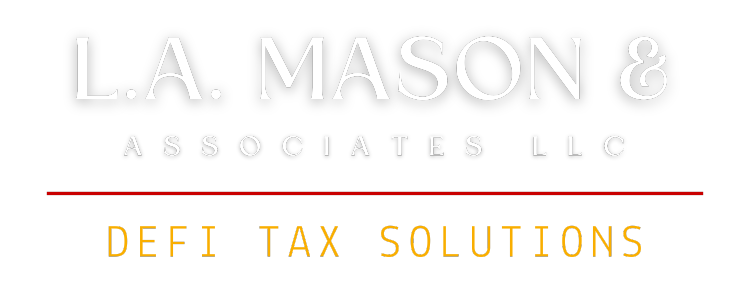Under Surveillance: The Intrusive Nature of the Beneficial Ownership Information Report for Businesses
What is a Beneficial Ownership Information Report and how does it affect business owners?
Hey, Boo. There’s something we need to talk about right quick. It’s important.
The Beneficial Ownership Information Report (BOI Report) is a new requirement that was created by the Corporate Transparency Act (CTA). The CTA was passed by Congress in 2021 and went into effect on January 1, 2024. The BOI Report requires certain types of businesses to disclose information about their beneficial owners to the Financial Crimes Enforcement Network (FinCEN).
Beneficial ownership information refers to identifying information about the individuals who directly or indirectly own or control a company. This information can include names, addresses, dates of birth, and other identifying information. The BOI Report must be filed with FinCEN by the business itself, and it must be updated annually.
The BOI Report is designed to help law enforcement and financial institutions track down and investigate financial crimes. By knowing who the beneficial owners of a company are, law enforcement can more easily identify and prosecute criminals who use shell companies to launder money or commit other crimes. Financial institutions can also use the BOI Report to screen customers for potential risks.
What is the history of FinCEN?
The Financial Crimes Enforcement Network (FinCEN) is a bureau within the United States Department of the Treasury that was created in 1990 to support federal, state, local, and international law enforcement by analyzing the information required under the Bank Secrecy Act (BSA), one of the nation’s most important tools in the fight against money laundering.
FinCEN collects and analyzes financial information from a variety of sources, including banks, financial institutions, and other businesses. This information is used by law enforcement and other government agencies to investigate and prosecute financial crimes, such as money laundering, terrorist financing, and sanctions evasion.
The Corporate Transparency Act (CTA) was passed by the United States Congress in 2021 and went into effect on January 1, 2024. The CTA requires certain types of businesses, referred to as “reporting companies”, to disclose information about their beneficial owners to FinCEN.
The BOIR can affect business owners in several ways:
Overall, the BOI Report is a significant new requirement that will have many implications for business owners. It is important for businesses to understand the requirements of the BOI Report and to take steps to comply with it.
Transparency: Submitting a BOIR necessitates a level of transparency about who ultimately owns and controls a company. This can help to build trust with banks, investors, and regulators.
Compliance: Many countries have laws requiring companies to maintain accurate and up-to-date beneficial ownership information. Failure to comply with these regulations can result in penalties, including fines and potential criminal charges.
Time and resources: Preparing a BOIR can require a significant investment of time and resources, particularly for companies with complex ownership structures. This can be a burden for small business owners.
Privacy: Some business owners may have privacy concerns, as beneficial ownership information can sometimes be made publicly available, depending on the jurisdiction.
Who is required to fill out the report, how is the report submitted, and who is the report submitted to?
The Beneficial Ownership Information Report (BOI Report) is required to be filed by certain types of businesses, referred to as “reporting companies”. The following entities are required to file a BOI Report:
- Corporations
- Limited liability companies (LLCs)
- Business trusts
- Limited partnerships
A Beneficial Ownership Information Report (BOIR) is a document that outlines the details of the individuals who own or control a significant interest in a business. This is typically defined as owning 25% or more of a company or having significant control over its operations. The BOIR is often required by financial institutions, regulators, and other parties to understand the ownership structure of a company, as part of efforts to prevent money laundering, tax evasion, and other illicit activities.
Sole proprietorships are not required to file a BOI Report. This is because a sole proprietorship is considered to be a disregarded entity for tax purposes. This means that the business’s income and expenses are reported on the owner’s personal tax return. As a result, there is no need to collect information about the beneficial owners of a sole proprietorship.
A reporting company must file a BOI Report with FinCEN, the Financial Crimes Enforcement Network. The BOI Report can be filed electronically through FinCEN’s Beneficial Ownership Information Reporting System (BOIRS). The BOI Report must be filed within 14 days of the date that the reporting company is formed or registered to do business in the United States. The BOI Report must be updated annually.
The BOI Report must include the following information about each beneficial owner of the reporting company:
- Name
- Date of birth
- Citizenship
- Residential address
- Taxpayer identification number (TIN) or passport number
- A description of the beneficial owner’s ownership interest in the reporting company
The BOI Report is a public record, meaning anyone can access it. This information can be used by law enforcement and financial institutions to track down and investigate financial crimes.
Is this system a part of the IRS?
No, the Beneficial Ownership Information Reporting System (BOIRS) is not a part of the Internal Revenue Service (IRS). The BOIRS is operated by the Financial Crimes Enforcement Network (FinCEN), which is a bureau within the U.S. Department of the Treasury. The IRS is a separate agency within the U.S. Department of the Treasury that is responsible for collecting taxes.
The BOIRS is designed to collect information about the beneficial owners of certain types of businesses, such as corporations, limited liability companies, and business trusts. This information can be used by law enforcement and financial institutions to track down and investigate financial crimes. The IRS does not collect information about beneficial owners, but it does collect information about the owners of businesses for tax purposes.
Is the system up and running now?
The Beneficial Ownership Information Reporting System (BOIRS) is not yet up and running. It is expected to be launched on January 1, 2024, the same date that the Corporate Transparency Act (CTA) goes into effect.
The BOIRS will be available to all businesses that are required to file a BOI Report, regardless of whether they are new or existing businesses. However, businesses that are formed or registered to do business in the United States after January 1, 2024, will be required to file a BOI Report within 14 days of formation or registration.
Is this just for new reporting businesses?
Businesses already in existence on January 1, 2024, will have until January 1, 2025, to file their first BOI Report.
Once the BOIRS is up and running, businesses will be able to file their BOI Reports online through the BOIRS website. The BOIRS website will be available in English and Spanish.
Here are some additional things that business owners need to know about the BOI Report:
- The BOI Report must be filed electronically through FinCEN’s Beneficial Ownership Information Reporting System (BOIRS).
- The BOI Report must be filed within 14 days of the date that the business is formed or registered to do business in the United States.
- The BOI Report must be updated annually.
- The BOI Report is a public record, meaning anyone can access it.
- The information in the BOI Report can be used by law enforcement and financial institutions to track down and investigate financial crimes.
What are the penalties for not filing the report?
The penalties for not filing a Beneficial Ownership Information Report (BOI Report) can be severe. The Corporate Transparency Act (CTA) sets forth many civil and criminal penalties for non-compliance.
- Civil penalties
- For each day that a BOI Report is not filed, a reporting company may be liable for a civil penalty of up to $500. This means that a reporting company that fails to file a BOI Report for an entire year could be liable for a civil penalty of up to $18,250.
- In addition, the CTA provides for several other civil penalties for non-compliance, including:
- A civil penalty of up to $10,000 for willfully failing to file a BOI Report or willfully providing false or fraudulent information in a BOI Report.
- A civil penalty of up to $500 for each day that a reporting company fails to keep its BOI Report up to date.
- Criminal penalties
- The CTA also provides for criminal penalties for non-compliance. The following are some of the criminal penalties that may be imposed for non-compliance:
- A fine of up to $500,000 or imprisonment for up to five years, or both, for willfully failing to file a BOI Report or willfully providing false or fraudulent information in a BOI Report.
- A fine of up to $250,000 or imprisonment for up to three years, or both, for knowingly disclosing or using beneficial ownership information without authorization.
- The CTA also provides for many other criminal penalties for non-compliance, including:
- A fine of up to $10,000 or imprisonment for up to one year, or both, for failing to maintain a BOI Report or failing to keep a BOI Report up to date.
- A fine of up to $5,000 or imprisonment for up to six months, or both, for knowingly making a false or misleading statement to FinCEN in connection with a BOI Report.
It is important to note that these are just some of the penalties that may be imposed for non-compliance with the BOI Report requirements. The CTA also provides for several other penalties, and the specific penalties that may be imposed will depend on the specific facts and circumstances of the case.
If you are a business owner who is required to file a BOI Report, it is important to understand the requirements of the CTA and to take steps to comply with them. Failure to comply with the BOI Report requirements could result in significant penalties.
Here are some additional resources that you may find helpful:






